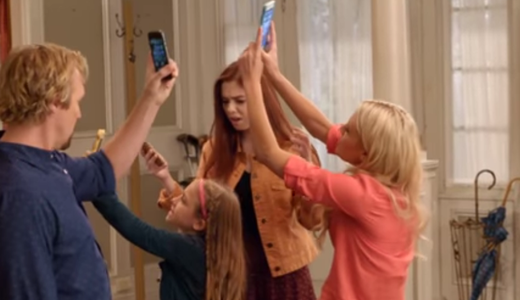Way back yonder, folks came out West to find a new life, raise families and … well, who am I kidding, get stinkin’ rich. They’d travel to the gold fields of California or Colorado or the Yukon, visions of shiny yellow metal flashing in their nugget-hungry noggins. Some of them indeed struck it rich. Many others … well, they bought their pans and shovels and worked for years, only to come up empty. There might be gold in them thar hills, but finding it … that proved to be pretty tricky.
The world of television feels a little like that these days.
There’s a television content rush underway right now—a stampede to mine American homes for their attention, adoration and, most importantly, money.
Netflix was really the first prospector to try to overturn the television status quo. The service, then mainly known as a platform for other people’s content, started pushing out award-winning shows of its own such as House of Cards and Orange is the New Black. Amazon and Hulu soon joined the rush, breaking into public consciousness with buzzy hits of their own.
Arguably, these streaming “networks” define what television is these days far more than the traditional broadcast networks of ABC, NBC, CBS and Fox. Just look at this weekend’s contenders for Emmy awards: Netflix nabbed 91 nominations—second only to HBO. Hulu, propelled by its breakout The Handmaid’s Tale, scored 18 noms, while Amazon notched 16. Of the seven shows nominated for best television drama, four come not from traditional television channels, but from streaming sites.
Have these companies struck gold? Maybe. But if so, they’re spending a whole lot of cash to find it. Netflix says it’ll spend $6 billion this year on new content—despite being $4.8 billion in debt already—and plans to hike its spending to $7 billion next year. Amazon Prime’s cash outlay is an estimated $4.5 billion, and Hulu’s budgeted $2.5 billion for its programs.
That’s a remarkable cash outlay, particularly considering the questionable returns. Back in the ancient days of broadcast television, execs knew how much a hit show was bringing in, based on ratings and advertising dollars. Netflix et al. don’t care about ratings and they don’t solicit advertisers: They’re only interested in subscribers. And just how many people subscribe for one hit show is an inexact science.
No matter: The rush is only getting more frenzied. YouTube’s fostering its own scripted content channel. Apple wants to fund its own original content, too—budgeting $1 billion to acquire and produce television shows over the next year. Sony’s PlayStation—primarily a video game platform up to this point—also has its own fledgling television service (though it admittedly may be on the way out, given that its one-and-only original show was recently cancelled).
And now the faith community has a player in this television content rush, too.
“We know the faith and family audience as good as anyone,” says PureFlix spokesman David Migdal, “and with original programming, we’re able to customize content for the wants and needs of our audience.”
Pureflix.com, a subsidiary of Pure Flix Entertainment, the studio behind such films as God’s Not Dead, presumably isn’t funneling billions into its efforts. But nor is it really a prospector-come-lately, either. Since 2015, pureflix.com has been developing its own slate of faith-friendly television content. The newest show, Hitting the Breaks, is a Christian sitcom—the service’s first—and stars Pure Flix co-founder (and God’s Not Dead star) David A.R. White and includes guest spots from everyone from Tim Tebow to Carrot Top. Oh, and Burt Reynolds lends his sonorous voice to the show, as well.
And PureFlix isn’t staying put. This November, it’ll unveil what may be the first Christian soap opera (Or as the folks at PureFlix like to refer to it as, a “hope opera”). Titled Hilton Head Island, it’ll focus on a family that owns a television station on … well, Hilton Head Island.
These PureFlix shows aren’t aspiring to join the ranks of prestige television just yet. But they do provide a certain alternative to what’s available in this burgeoning television landscape. And I think that’s a good thing.
Our screens have never been so saturated with content as they are now, both in terms of just the sheer level of programming and the sex and violence found in that programming. The television gold rush is at its peak. As such, it’s nice to see a company give faith-based viewers options.
Will PureFlix strike it rich? That remains to be seen. But as the Good Book says, there are things more precious than gold.






Recent Comments